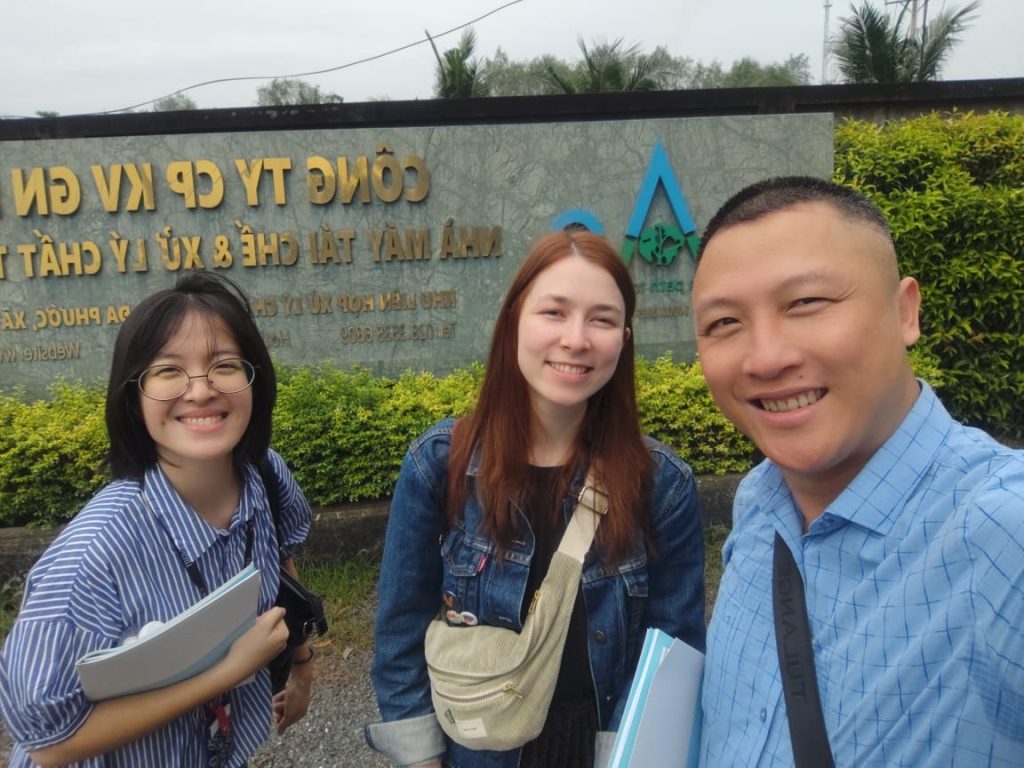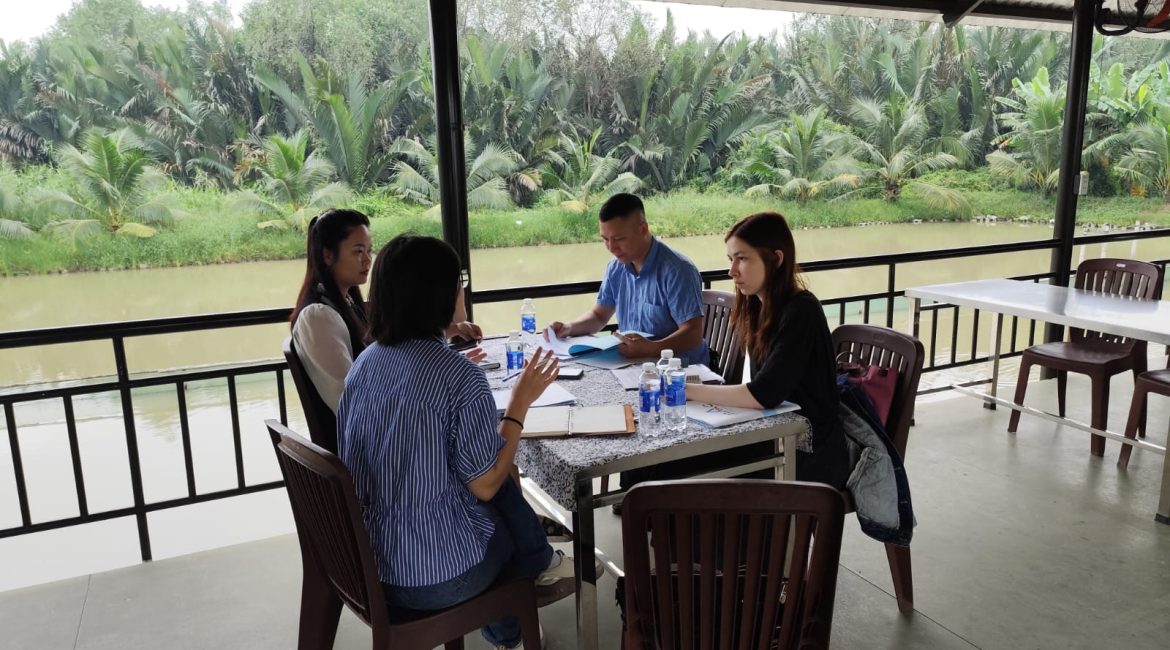In December 2024, Margot Rocheteau, a PhD student at the Hanken School of Economics, went on a three-week field trip to Vietnam as part of her work for the WORM project. The trip was an opportunity to learn more about Vietnamese waste management practices, health activities and humanitarian operations in Hanoi, Hue and Saigon, where she collaborated with the Vietnamese Red Cross and RMIT University.
The trip was highly productive and multifaceted, with activities covering research, interviews, and a workshop. She conducted 11 interviews with medical staff and representatives from humanitarian organisations, gaining insights into the specific challenges and practices of humanitarian interventions in Vietnam. These conversations highlighted how local context shapes responses to crises and the implementation of sustainability in aid projects.
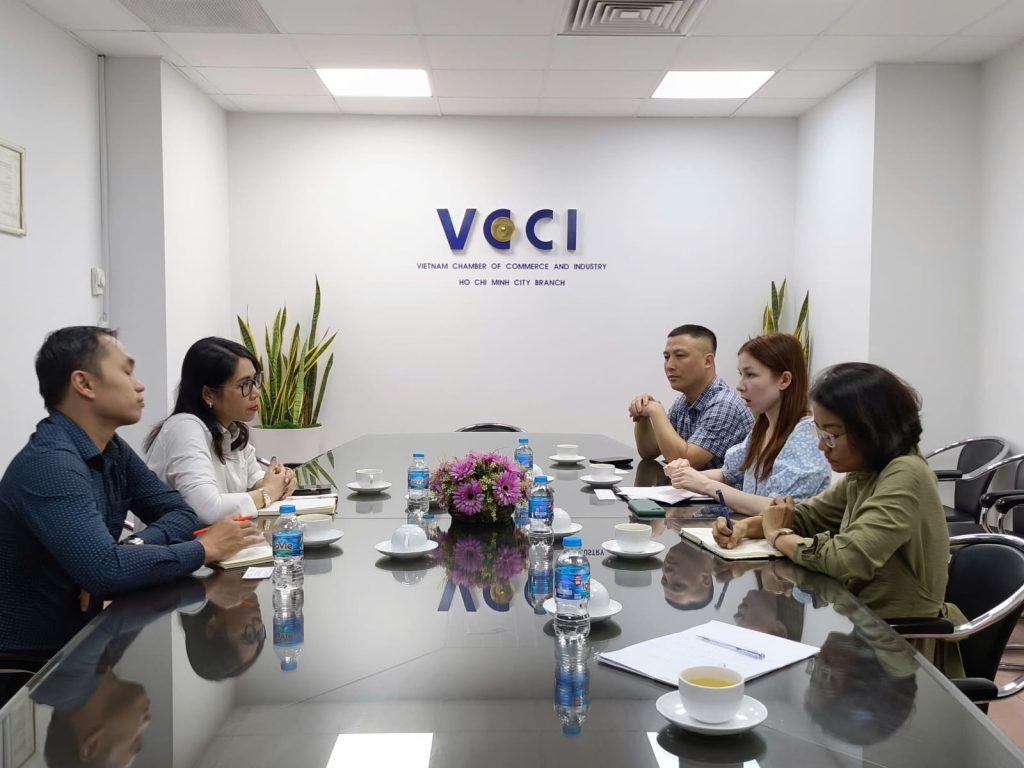
She visited a waste treatment center to observe how Vietnam is addressing its growing waste management issues. This visit provided critical context for understanding current practices and gaps in infrastructure.
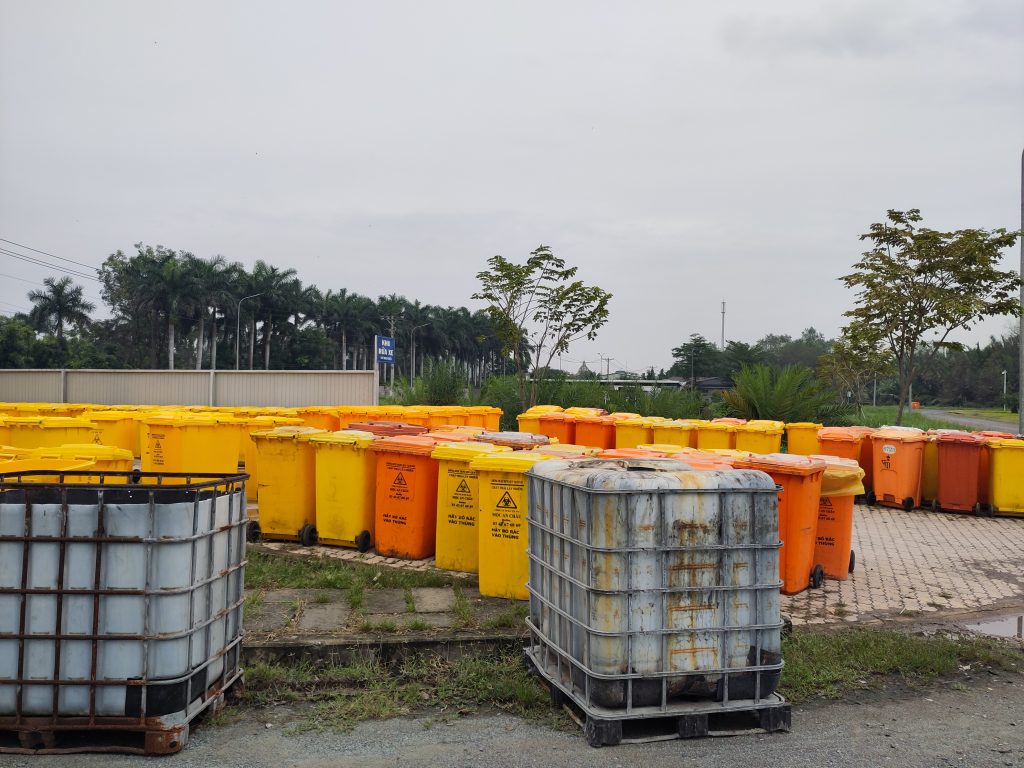
She also participated in Nestlé’s packaging workshop, where she learned about the current regulations in place aiming to reduce packaging waste and explored opportunities for collaboration between corporations and local organizations.
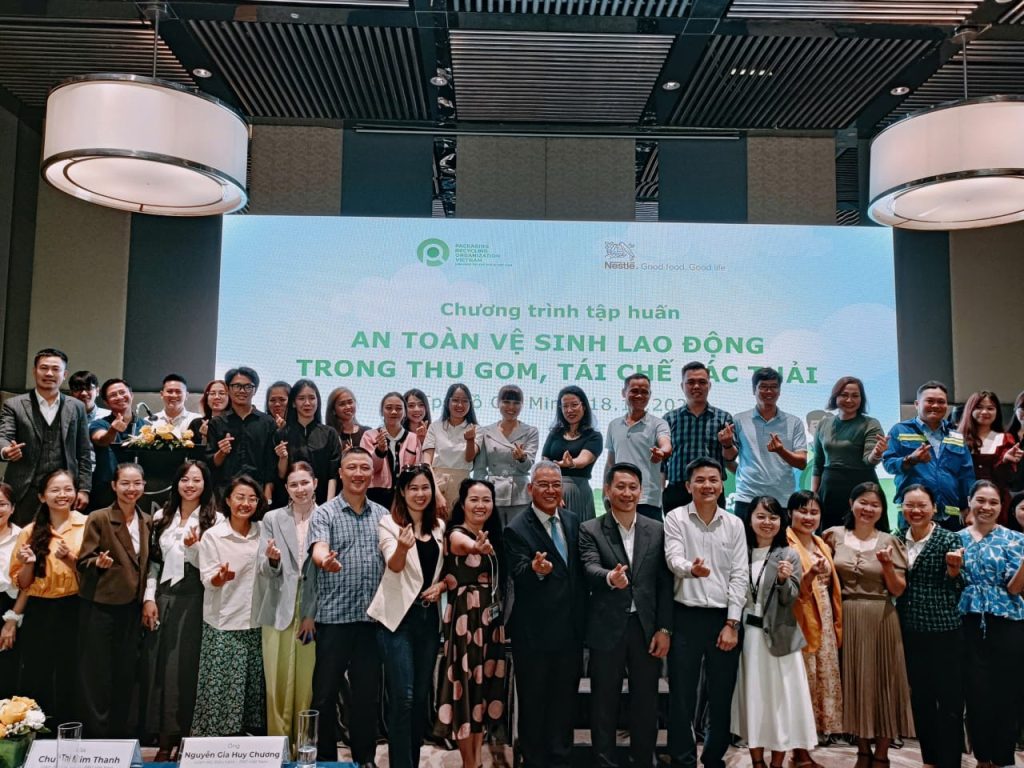
Throughout the field trip, she learnt more about Vietnam’s regulatory framework concerning safety and environmental standards and how these, sometimes contradictory, regulations impact waste management practices. These included the need for improved waste segregation systems, stronger enforcement mechanisms, and greater community engagement.
This field trip offered an overview of Vietnam’s approach to waste management and humanitarian work, highlighting both its challenges and potential for progress. The support of VNRC and RMIT was invaluable in facilitating connections and will significantly inform WORM’s initiatives in Vietnam and other regions facing similar challenges.
Thank you everyone for your hard work!
